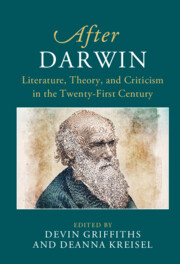Book contents
- After Darwin
- After Series
- After Darwin
- Copyright page
- Contents
- Figures
- Contributors
- Chapter 1 Introduction
- Part I Environments after Darwin
- Part II Differences after Darwin
- Part III Humanism after Darwin
- Chapter 11 Darwin’s Human History
- Chapter 12 Conscience after Darwin
- Chapter 13 Darwin, the Sublime and the Chronology of Looking
- Chapter 14 Instinctive Moral Actions
- Chapter 15 Darwinian Analogies in Thinking about Art and Culture
- Afterword
- References
- Index
Chapter 12 - Conscience after Darwin
from Part III - Humanism after Darwin
Published online by Cambridge University Press: 01 December 2022
- After Darwin
- After Series
- After Darwin
- Copyright page
- Contents
- Figures
- Contributors
- Chapter 1 Introduction
- Part I Environments after Darwin
- Part II Differences after Darwin
- Part III Humanism after Darwin
- Chapter 11 Darwin’s Human History
- Chapter 12 Conscience after Darwin
- Chapter 13 Darwin, the Sublime and the Chronology of Looking
- Chapter 14 Instinctive Moral Actions
- Chapter 15 Darwinian Analogies in Thinking about Art and Culture
- Afterword
- References
- Index
Summary
This chapter argues that Darwin's thought plays a central role in the history of the conscience and that the history of the conscience plays a central role in Darwin's thought. A core project of his later works is to show how the human moral faculties could have evolved, since such a faculty seemed to pose a decisive objection to the theory of natural selection. But the theory of group selection Darwin developed to explain the origins of morality had the inadvertent effect of inducing skepticism about instinctive moral feeling. Such skepticism transformed Western moral thought: although appeals to moral “intuitions” and naturalistic theories of ethics would return, after Darwin's analysis of the conscience never again could the bare fact of moral feeling offer evidence of the divine design of humanity. In ways thinkers are still considering, Darwin forced moral philosophy to confront its fundamental earthliness.
- Type
- Chapter
- Information
- After DarwinLiterature, Theory, and Criticism in the Twenty-First Century, pp. 151 - 164Publisher: Cambridge University PressPrint publication year: 2022

